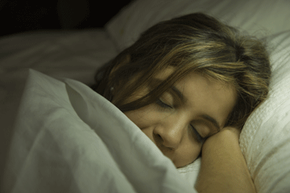Most adults who aren't insomniacs love it when that time of the night rolls around. At last, they can leave the worries of the day behind and fall into a lovely, relaxing sleep. A night of sawing logs can leave you feeling refreshed and ready for the coming day. Some people even make better decisions after "sleeping on it" for the night. In fact, an easier article to write might be "why do we love to sleep?." The trouble is, after all these years and millions of hours of research, science still isn't exactly sure why we sleep. There's an old joke among sleep scientists that the purpose of sleep is to cure sleepiness. But humor aside, there are a few theories on the matter.
One theory is that sleep is our brain's opportunity to file away or discard memories, thoughts and events from the previous day. Think of your brain as a desktop computer, and sleep as your way of organizing everything after a long day of work. Some of the files you may want to store away as permanent memory, but others you might want to put directly into the recycling bin. A study performed on lab rats found the same neurons that fired when a rat was completing a task (like working its way through a maze) also fired when the rat was sleeping [source: Gorman]. This indicates that a review process may take place while we sleep. (However, it was also learned that the same neurons were reactivated during periods of rest.)
Advertisement
The filing theory jibes with the fact that we often wake up with a clearer head. Have you ever decided to "sleep on it" before you made a tough decision? There might be something to that strategy. It's been theorized that, during the night, some of the unnecessary emotional responses and extra information that clouded your thoughts are put into the recycling bin, leaving only the information necessary to make the decision. The next morning you awake with a crystal clear perspective on something that had previously seemed muddled.
But that's not the only theory about the function of sleep. Find out more on the next page.
Advertisement
